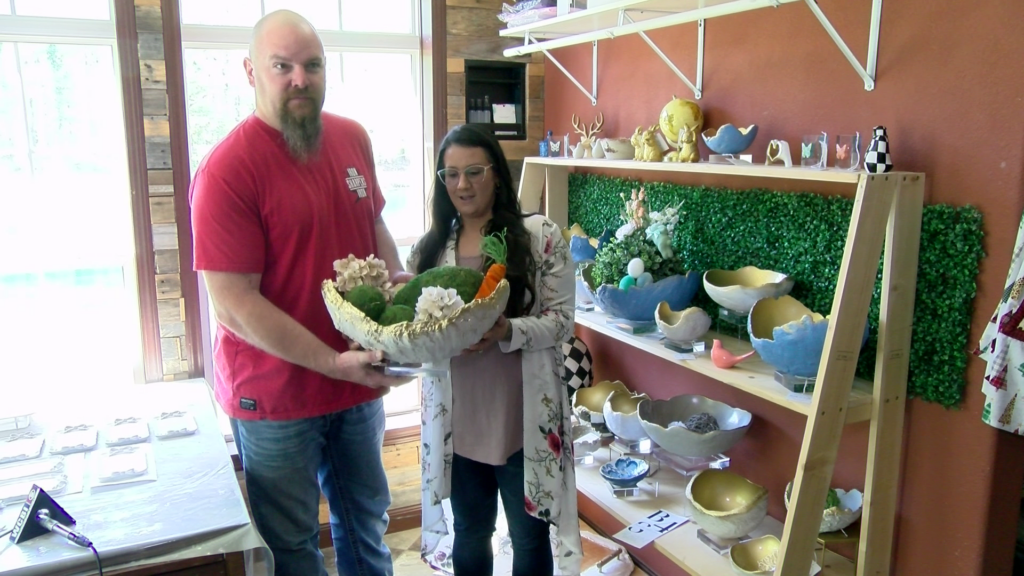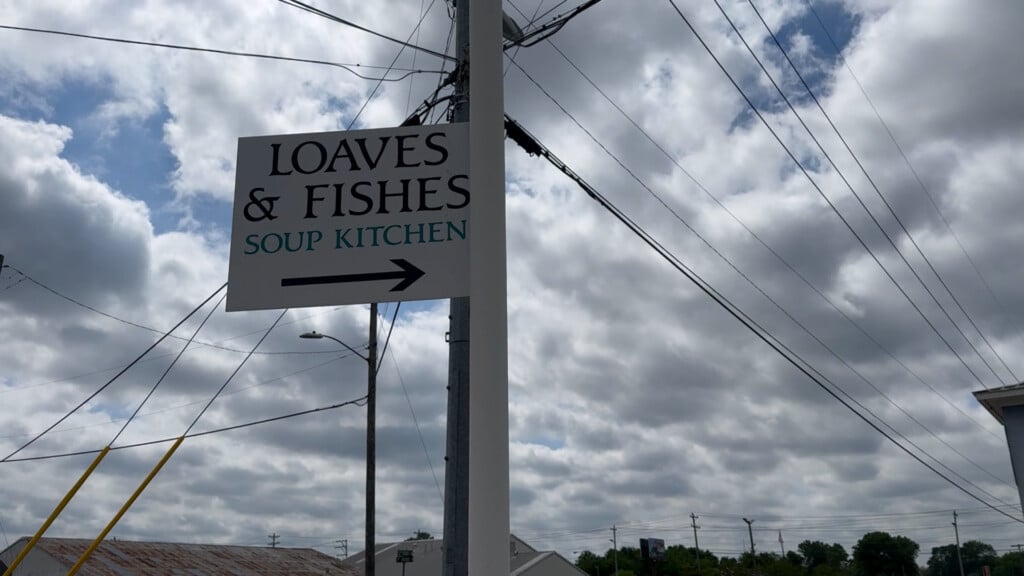Fauci warns of “serious” consequences if U.S. reopens too soon
Washington — Dr. Anthony Fauci, the nation’s leading infectious diseases expert, expressed a fear that if cities and states do not adhere to the government’s guidelines on when and how they can begin to reopen, there could be more COVID-19 outbreaks.
If “states or cities or regions” disregard the government’s “checkpoints” on when it’s safe to pull back from mitigation measures, Fauci said that “there is a real risk that you will trigger an outbreak that you might not be able to control, which, in fact, paradoxically, will set you back, not only leading to some suffering and death that could be avoided, but could even set you back on the road to trying to get economic recovery.”
“We would almost turn the clock back, rather than going forward,” he added, in testimony before the Senate Health Committee Tuesday on reopening the country and schools.
Fauci, who is a key member of the White House Coronavirus Task Force, also offered lawmakers an update on the development of a vaccine against COVID-19 during his first appearance before Congress since March. He provided an optimistic timeline for vaccine development and said there are at least eight vaccines in various stages of development.
“We have many candidates and hope to have multiple winners,” he said. The NIH has been collaborating with “a number” of pharmaceutical companies. Fauci had initially predicted that it would take a year to 18 months to develop a vaccine but now says that the NIH trial “moved very quickly.”
“On January 10, the sequence was known….On 14 January, we officially started the vaccine development. Sixty-two days later, we are in clinical trial with the two doses fully enrolled,” he said. The government is proceeding with phases two and three “in late spring and early summer.”
“If we are successful, we hope to know that in the late fall and early winter,” Fauci said.
But he warned that “there is also the possibility of negative consequences where certain vaccines can actually enhance the negative effect of the infection.”
Fauci appeared remotely at the hearing, along with Dr. Robert Redfield, the director of the Centers for Disease Control and Prevention (CDC); Food and Drug Administration Commissioner Stephen Hahn; and Assistant Secretary for Health Brett Giroir. The hearing was conducted largely by teleconference. Although some lawmakers were in the room, some masked, others — including the chairman and ranking member and all of the witnesses — appeared remotely. Virginia Senator Tim Kaine, who was in the hearing room, attracted quite a bit of attention on social media.
Senator Lamar Alexander, the chairman of the Senate Health, Education, Labor and Pensions (HELP) Committee, tackled one of the main concerns of the hearing — how the nation’s 5,000 college campuses and 100,000 public schools could safely prepare to open in the fall.
“What would you say to the chancellor of the University of Tennessee or the principal of a public school about how to persuade parents and students to return to school in August,” he wanted to know.
Fauci responded that he would be “very realistic,” and said that relying on the idea that there would be treatments or a vaccine to facilitate the reopening of schools in the fall “would be a bit of a bridge too far.”
But the medical experts testifying suggested that they expected to see increases in testing, which may help students feel safer returning to their classes. Giroir projected that the country would be able to conduct 40 to 50 million tests per month by September. By the end of the year, the federal government will procure 135 million swabs and 132 million tubes of media to states, Giroir said, and he suggested that there might also be some surveillance or testing strategies that could prove useful.
Senator Mitt Romney thought the administration was painting too rosy a picture of testing efforts to date, chastising Giroir for claiming Monday “that we had done more tests and more tests per capita even than South Korea.” Romney said, “You ignored the fact that they accomplished theirs at the beginning of the outbreak while we treaded water during February and March. And as a result by March 6th, the U.S. had completed just 2,000 tests, whereas South Korea had conducted more than 140,000 tests, so partially as a result of that, they have 256 deaths and we have almost 80,000 deaths.”
Romney also noted that President Trump has directly blamed President Obama for the lack of a vaccine.
“Dr. Fauci, is president Obama or by extension President Trump, did they do something that made the likelihood of creating a vaccine less likely, are either President Trump or president Obama responsible for the fact that we don’t have a vaccine now,” he asked.
“No, no, Senator not at all,” Fauci replied. “Certainly President Obama nor President Trump are responsible for our not having a vaccine,” and he went on to reiterate that vaccine development has in fact been moving “rather rapidly.”
During the hearing, Senator Bernie Sanders, of Vermont, asked Fauci if he believes the true death toll is actually higher than current figures indicate. Fauci responded, “I think you are correct,” because people died at home in New York at the start of the epidemic and were not counted as coronavirus victims. He said he doesn’t know how much larger the true death toll is, but it is “almost certainly is higher.”
At this point, Fauci believes that the infection rate is coming down a little. “When you look at the dynamics of new cases, even though some are coming down, the curve looks flat with some slight coming down,” he said. “So, I think we’re going in the right direction. But the right direction does not mean we have by any means total control of this outbreak.”
Ranking Member Patty Murray in her opening statement criticized President Trump for choosing to “ignore the facts, and ignore the experts who have been clear we are nowhere close to where we need to be to reopen safely.” She also called for a national testing system, as well as for more personal protective equipment to be made available to health care workers. Murray also argued that Congress needs to work on another coronavirus-related package, although Senate Republicans have argued that it is unnecessary to immediately work on the next phase of legislation.
Redfield spoke about CDC’s progress in assisting with the pandemic response, but said that it was still critical to maintain social distancing measures.
“It’s important to emphasize that we’re not out of the woods yet,” he said. “We need to stay vigilant, and social distancing is imperative.”
Under questioning from Senator Kelly Loeffler, all four witnesses said they did not have a “confrontational relationship” with the president.
“There is certainly not a confrontational relationship between me and the president,” Fauci said. He also said that the president listened to him and was open to his suggestions.
Fauci is currently in a “modified quarantine,” following exposure to a White House staffer who tested positive for the virus. Over the weekend, Fauci told CBS News he is “low risk” based on the type of exposure he had to the staffer and is quarantining out of an abundance of caution. However, on Monday Fauci was at the White House, telling CBS News he is essential personnel and wore a mask while socially distancing.
His testimony before the Senate comes after the Trump administration blocked him from appearing before a House committee to discuss spending on coronavirus testing. President Trump told reporters last week that he doesn’t want officials appearing before House Democrats, who hold the majority.
“The House is a setup,” Mr. Trump said. “The House is a bunch of Trump haters.”
The White House Office of Legislative Affairs sent a memo to all House and Senate committee staff directors last week that bars all members of the White House Coronavirus Task Force from appearing before a congressional committee without the permission of chief of staff Mark Meadows.
Fauci’s testimony came as several states begin to ease coronavirus-related restrictions, although health experts remain concerned about a second wave of the coronavirus. The economic fallout from the pandemic has been devastating, with the unemployment rate rising to 14.7% in April, the highest level since the Great Depression.
Paula Reid, Allyson Ross Taylor and Nancy Cordes contributed to this report.





Leave a Reply